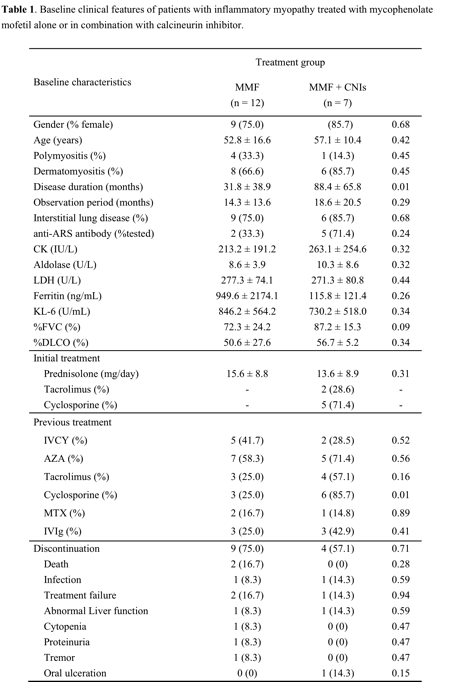Session Information
Session Type: ACR Poster Session C
Session Time: 9:00AM-11:00AM

Disclosure: H. Hanaoka, None; H. Iida, None; T. Kiyokawa, None; Y. Takakuwa, None; K. Kawahata, None.
To cite this abstract in AMA style:
Hanaoka H, Iida H, Kiyokawa T, Takakuwa Y, Kawahata K. Mycophenolate Mofetil Treatment with or without a Calcineurin Inhibitor in Resistant Inflammatory Myopathy [abstract]. Arthritis Rheumatol. 2017; 69 (suppl 10). https://acrabstracts.org/abstract/mycophenolate-mofetil-treatment-with-or-without-a-calcineurin-inhibitor-in-resistant-inflammatory-myopathy/. Accessed .« Back to 2017 ACR/ARHP Annual Meeting
ACR Meeting Abstracts - https://acrabstracts.org/abstract/mycophenolate-mofetil-treatment-with-or-without-a-calcineurin-inhibitor-in-resistant-inflammatory-myopathy/

